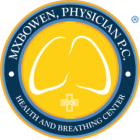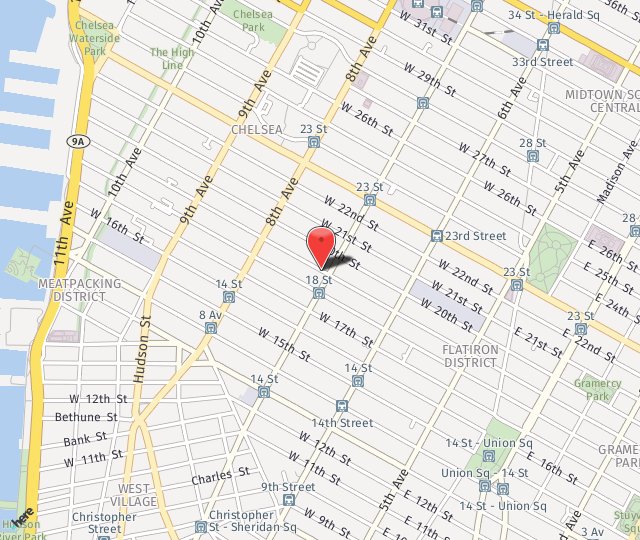
In this blog, experienced Manhattan pulmonologist, Dr. Marc Bowen, will address what causes shortness of breath and how you can find long-lasting relief from this symptom.
Is shortness of breath caused by a problem with my lungs?
It’s important to understand that there are many possible causes of shortness of breath, also known as dyspnea. The lungs and the respiratory system as a whole are just one possible source of the problem. Other factors that may cause or contribute to dyspnea include:
- The cardiovascular system
- The esophagus
- The sinuses
- Fractured ribs
- Emotional or psychological factors
- Obesity
What causes shortness of breath?
In some cases, shortness of breath may be a normal occurrence, which even the healthiest individuals can encounter. Strenuous exercise, extreme temperatures, and high altitudes are all examples of circumstances that can lead to labored breathing.
But beyond these certain circumstances, ongoing shortness of breath can signal a medical problem. The causes of dyspnea are numerous, ranging from more minor issues that are reversible or manageable, to potentially very serious health problems. A few of the many causes of shortness of breath include:
- Asthma
- Chronic obstructive pulmonary disease, including chronic or asthmatic bronchitis and other smoking-related diseases
- Emphysema
- Pulmonary fibrosis
- Pulmonary hypertension
- Pulmonary infections, including acute bronchitis and pneumonia
- Infections or tumors of the respiratory tract
- Chronic lung infections, including tuberculosis and fungal infections
- Obstructive sleep apnea
- Lung cancer
Shortness of breath can also go hand in hand with a number of other unpleasant symptoms, including things like a chronic cough, wheezing, chest pain, heart palpitations and dizziness or light headedness – all of which should be evaluated by a physician.
How can I relieve my shortness of breath?
Finding relief from shortness of breath starts with proper diagnosis. After the underlying cause of your breathing problem has been identified, a treatment plan can be tailored to your needs. At MXBowen, Physician P.C., Health & Breathing Center, we know just how distressing shortness of breath can be and how important it is for patients to get answers about their condition as soon as possible. That’s why we offer the full range of in-office diagnostic tests, which may include:
- Pulmonary function testing – to evaluate lung function, including volume and capacity as well as the rates of airflow and gas exchange
- Pulmonary/thoracic ultrasound – may be performed if you have symptoms indicating pneumonia, pulmonary edema, pleural effusion, or pneumothorax
- Nitric oxide monitoring – may be performed if you have symptoms indicating asthma or airway inflammation
If you have symptoms indicating pleural effusion, Dr. Bowen may recommend that you undergo a thoracentesis/pleural biopsy in a hospital setting. This may be performed to confirm or rule out infections or diseases such as cancer, pneumonia, congestive heart failure or pulmonary hypertension. In addition, Dr. Bowen may provide a referral for lung cancer screening or a chest X-ray, if deemed necessary. This will allow him to check for any abnormal radiographic findings that could be causing your shortness of breath.
We also offer home sleep testing, a diagnostic test performed by a patient from the comfort of their own bed, which may be recommended if a patient is exhibiting symptoms of obstructive sleep apnea.
Providing these tests allows Dr. Bowen to evaluate your symptoms, get to the bottom of your condition, and determine the appropriate treatment to improve your breathing.
Depending on your specific needs, treatment to relieve shortness of breath may include things such as:
- Using bronchodilator medications to open up the airways and make breathing easier (often used for asthma and COPD)
- Taking corticosteroids to reduce swelling and control inflammation in the lungs
- Taking antibiotics to treat a bacterial infection (often used for pneumonia and severe bronchitis)
- Undergoing a thoracentesis to remove excess fluid from the pleural space caused by pleural effusion
- Performing a nitric oxide monitoring test to evaluate the degree of airway inflammation and adjust therapy for patients with diagnosed asthma
In addition, lifestyle changes may help improve symptoms too, such as losing weight and quitting smoking.
Where can I find treatment for shortness of breath in NYC?
Don’t let shortness of breath keep you from living the life you want to live. Get started on the path to diagnosis and treatment for shortness of breath by making an appointment with Dr. Bowen at MXBowen, Physician P.C., Health & Breathing Center today. You can schedule your appointment bycontacting our office.












